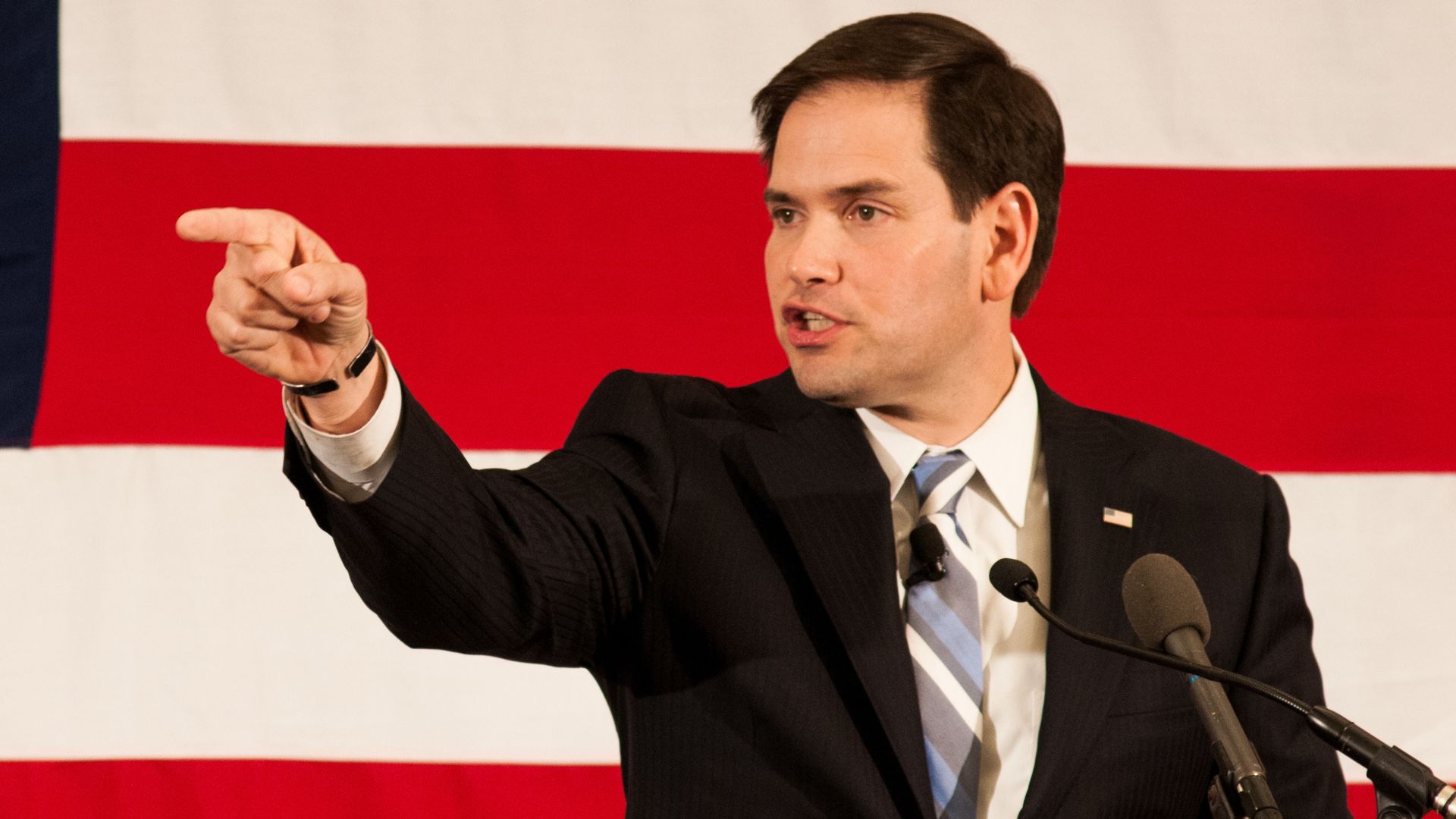
Secretary of State Marco Rubio announced a new visa restriction policy on Wednesday that will target foreign individuals involved in censoring Americans’ free speech, marking a significant move by the Trump administration to defend First Amendment rights beyond U.S. borders.
Rubio made the announcement on the social media platform X, stating, “For too long, Americans have been fined, harassed, and even charged by foreign authorities for exercising their free speech rights.”
“Today, I am announcing a new visa restriction policy that will apply to foreign officials and persons who are complicit in censoring Americans,” Rubio wrote.
Trump’s Sovereign Wealth Fund: What Could It Mean For Your Money?
The new policy signals a shift in U.S. diplomatic posture, aiming to hold accountable not only adversarial regimes but also officials in allied nations who, according to Rubio, attempt to restrict the free expression of U.S. citizens abroad.
“Free speech is essential to the American way of life – a birthright over which foreign governments have no authority,” Rubio continued.
For too long, Americans have been fined, harassed, and even charged by foreign authorities for exercising their free speech rights.
Today, I am announcing a new visa restriction policy that will apply to foreign officials and persons who are complicit in censoring Americans.…
— Secretary Marco Rubio (@SecRubio) May 28, 2025
This Could Be the Most Important Video Gun Owners Watch All Year
“Foreigners who work to undermine the rights of Americans should not enjoy the privilege of traveling to our country. Whether in Latin America, Europe, or elsewhere, the days of passive treatment for those who work to undermine the rights of Americans are over.”
Foreigners who work to undermine the rights of Americans should not enjoy the privilege of traveling to our country. Whether in Latin America, Europe, or elsewhere, the days of passive treatment for those who work to undermine the rights of Americans are over.
— Secretary Marco Rubio (@SecRubio) May 28, 2025
The United States has long condemned censorship efforts in authoritarian nations such as China, Russia, Iran, and Cuba.
However, Rubio’s statement highlights a broader application of the new policy, extending scrutiny to countries traditionally considered U.S. allies.
A senior State Department official confirmed that a U.S. delegation is currently in Ireland to meet with local officials and discuss recently enacted legislation by the European Union that affects U.S.-based technology companies operating in the region.
According to the official, the legislation is framed as a child protection measure intended to regulate online content and prevent exploitation, including child pornography.
However, the State Department has raised concerns that the law has also been used to suppress political speech deemed offensive or hateful by European governments.
The same official indicated that American tech firms, many headquartered or operating in Ireland, face the risk of significant fines if they fail to comply with the European Union’s content moderation rules.
The new U.S. policy, according to Rubio’s statement, is intended to push back against such measures when they infringe on constitutionally protected speech by American citizens.
The visa policy announced by Secretary Rubio would enable the United States to deny entry to foreign officials and private individuals determined to have participated in or facilitated censorship actions against Americans, including online censorship.
It remains unclear how broadly the policy will be applied or how individuals will be identified for enforcement.
The State Department has not yet released a list of affected individuals or detailed the criteria for enforcement.
Rubio’s announcement aligns with the broader Trump administration initiative to confront threats to free speech, including those arising from global regulatory pressures on American companies and citizens.
The policy is expected to face criticism from some international partners but has already drawn support among lawmakers who have expressed concern over growing transnational censorship efforts aimed at limiting political discourse.
Further updates on the implementation of the visa restriction policy are expected to follow after the State Department delegation concludes its meetings in Ireland.
Connect with Vetted Off-Duty Cops to Instantly Fulfill Your Security Needs

![Rubio Unleashes Visa Ban on Foreign Officials Who Censor Americans [WATCH]](https://www.right2024.com/wp-content/uploads/2025/05/Rubio-Unleashes-Visa-Ban-on-Foreign-Officials-Who-Censor-Americans-750x375.jpg)
![Tulsi Gabbard Calls for Arrest of James Comey Over Call to Assassinate Trump [WATCH]](https://www.right2024.com/wp-content/uploads/2025/05/Tulsi-Gabbard-Calls-for-Arrest-of-James-Comey-Over-Call-350x250.jpg)


![Declaration Gaffe, Whisper Creep, and Conflicting Cancer Claims [WATCH]](https://www.right2024.com/wp-content/uploads/2025/05/Declaration-Gaffe-Whisper-Creep-and-Conflicting-Cancer-Claims-WATCH-350x250.jpg)

![Trump Drops Bombshell Video Linking Clintons to Mysterious Deaths [WATCH]](https://www.right2024.com/wp-content/uploads/2025/05/Trump-Drops-Bombshell-Video-Linking-Clintons-to-Mysterious-Deaths-WATCH-350x250.jpg)


![Bessent Exposes Media Lies About April’s Stock Market Performance [WATCH]](https://www.right2024.com/wp-content/uploads/2025/04/Bessent-Exposes-Media-Lies-About-Aprils-Stock-Market-Performance-WATCH-350x250.jpg)






